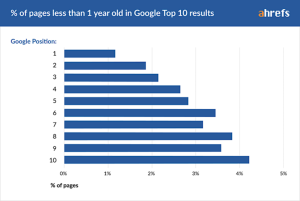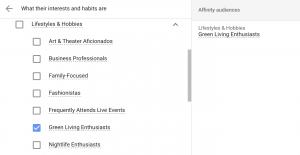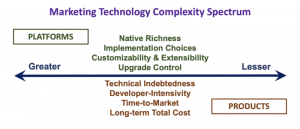
The life of a freelance blogger isn’t easy.
For starters, not only is each day filled with numerous deadlines, but the needs of every client are different, pulling your writing abilities in multiple directions.
Whether it be an issue of voice, tone, length or even on-page SEO strategy, contrary to popular belief, freelance bloggers don’t have the luxury of just sitting down and writing all day.
Don’t get me wrong—having spent the better part of the past three years as a freelance blogger, it’s a sweet gig. Before diving headfirst into editorial solopreneurship, though, make certain your expectations of what’s to come are realistic.
For me, the deadlines, client management and writer’s block aren’t all that bad, but it’s what they produce that’s the biggest killer of workplace enthusiasm—stress.
Think about it—freelance bloggers are entirely to blame for both their successes and failures. This puts a great deal of pressure on them to not only produce great content for their clients, but to produce it consistently, as well.
Fortunately, though I still have my down days every now and again, I’ve discovered three tried-and-true methods for minimizing stress while blogging.
Care to get beyond the basics of stress management?
Keep reading—below, you’ll gain access to what really works:
1) Kick the ‘Hustle & Grind’ Mentality to the Curb
The world of solopreneurship is loaded with more buzzwords than I’d care to mention. That said, none are quite as popular (or annoying) as “hustle and grind.”
Though overused, the terms shed an accurate light on what it ultimately takes to survive as a freelance blogger—unending urgency and an endless determination to succeed.
The only problem, here?
Oftentimes, solopreneurs mistakenly think that the number of hours they work is a direct representation of how well they’re “hustling” and “grinding” their way to the top.
Seriously, they almost wear the number of hours they work as a badge of honor, thinking that the later they go to bed, the more likely they are to make a name for themselves …
This couldn’t be farther from the truth.
As a freelance blogger, minimize stress by kicking the whole “hustle and grind” mentality to the curb. Yes, you’ll need to minimize distractions to work effectively during the day, but to do that, regularly going to bed at 3 o’clock in the morning isn’t going to help—clients simply don’t care.
Instead, create a routine for yourself, ensuring that you receive the sleep you need to put your best foot forward the next day. Generally speaking, most adults need between seven and nine hours of sleep to function properly.
And it’s true—work hard, but because of it, sleep well, too. To write well, your brain will need it.
2) Avoid ‘Information Overload’ at All Costs
When I first got started as a freelance blogger, this was huge for me.
To make sure that I was providing a quality service for my clients, I’d regularly take to sites like Copyblogger, ProBlogger and SmartBlogger to learn as much about blogging as possible.
Even better, to avoid having to manually keep up with each site’s content, I subscribed to their mailing lists and added each resource to my personal RSS feed.
For a while, things were great. I was getting the information I needed and could feel myself improving as a blogger because of it.
As time went on, however, my email and RSS subscriptions began to expand.
On top of them, I added a host of Facebook and LinkedIn groups to the mix to keep me up-to-date with everything I needed to know about freelance blogging.
You can already see where this sob story is headed …
It wasn’t long before I’d wake up to more information than I had time to consume. In a mad dash to not miss a beat, I’d read longer, write longer and work longer.
The information was awesome, but due to the sheer quantity of it, I began neglecting what mattered most for my up-and-coming freelance business—the quality of my posts and my sanity.
Yup, just as you’d suspected, I’d become yet another victim of “information overload.”
My response?
I quickly cut ties with the majority of sites that were bogging me down.
Oddly enough, months after launching my business, I was back to the original three publications (see above) that kept me in the freelance blogging loop.
To this day, I continue to exclusively use them.
With the time I’d saved, instead of spending hours reading about blogging, I was putting to practice what I’d learned. As a result, my level of stress drastically decreased, while the opposite occurred with my daily post production—it skyrocketed.
3) Always Think In Terms of the ‘Worst Case Scenario’
Listen, I’m a solid freelance blogger, but that by no means indicates that I haven’t made my fair share of mistakes. Whether involving my posts, a client or even my own freelance business, I’ve fallen flat on my face more times than I care to admit.
And you know what?
Contrary to what I thought immediately following each face plant, the world didn’t stop spinning and my blogging business continued to grow.
To this day, when a problem arises, I take a moment to look at it through a worst-case-scenario kind of lens. Truth be told, no matter how hard I try to make a grammatical error or unhappy client the end-all of my professional life, it never is.
When you start to feel stressed, know that the entirety of your blogging business is composed of small, relatively insignificant outcomes. Combined, they create something tremendous. By themselves, though, they don’t carry much weight.
Trust me—the sooner you come to this realization, the more you’ll enjoy blogging for a living.
Conclusion
I’m a freelance blogger. I love what I do.
Similar to any other job, there are good aspects, just as there are bad ones. Some days will go better than others—that’s to be expected.
What I’m unable to accept, however, is the surrendering of my peace of mind to stress. Blogging is much too fun to have deadlines, complex topics and cumbersome clients ruining it.
So, is your thought process somewhat similar to mine?
If so, cling to the above three suggestions. When put to good use, they’ll have you happily blogging on your own terms for years to come.
Digital & Social Articles on Business 2 Community(65)










